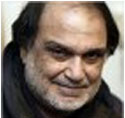
By Khaled Ahmed
May 13, 2016 12:10 am
It is good news when the media begins to report honestly in Pakistan, not hiding news it doesn’t like or fears. Pakistan seems to be recovering from the swoon it had succumbed to when terrorism was stronger than the state. The Nation on April 23, 2016 reported that Hafiz Saeed “LeT/JuD” chief, a “globally declared terrorist, addressed the students of the University of Engineering and Technology (UET), Lahore”.
Saeed once taught at the UET and not many people knew — and the media stayed away. Today, things are different, thanks to the action taken by the Pakistan army under General Raheel Sharif in Karachi and the rest of the country, including the bombing of safe havens of the Taliban in Waziristan. People like Saeed are no longer exempted from coverage. He has tried to make amends by declaring that “my organisation will not allow destruction of Hindu temples and other holy places of non-Muslims in the country”. But his hate speech has done more damage than he realises.
His return to the UET was particularly worrisome after the university’s gang of Al Qaeda-linked students had kidnapped then Punjab governor Salmaan Taseer’s son, Shahbaz Sharif, back in 2011. That Saeed had visited the UET was proved by the comments the news item received from some UET students.
Then The News of April 9 disclosed that Saeed in fact had been doing something unforgivable: Running stealth courts in violation of the constitution of Pakistan. “The supra-constitutional Sharia courts, established by Jamaat-ud-Dawa (JuD), operate across the country and only the Lahore court of this parallel judicial system has issued verdicts in 5,550 cases, including murder trials,” according to a report.
The “courts” had been going on since 1990 and one has been active even in Islamabad! Before any action could be taken by JuD against the news, Mufti Muhammad Idrees, a kind of stealth high court chief justice sitting in Masjid Qadisiya (the headquarters of JuD in Lahore) spilled all the beans. He claimed that seven Sharia courts had been functional, one each in Lahore, Gujranwala, Bahawalpur, Multan, Karachi, Quetta and Islamabad. Saeed is the head of all these courts, which makes him a kind of chief justice of the Supreme Court empowered to appoint judges as head Qazi (chief judge). Saeed was also the appellant authority hearing appeals with the power to dismiss decisions made by these subordinate judges. If he lets off someone he remains off.
The Supreme Court of Pakistan wants its strength increased from the current 17 to 26 because of the case load. The chief justice of India, T.S. Thakur, harassed by pendency, wept as he asked Prime Minister Narendra Modi to double the judges in Indian courts to 40,000. Nobody knew in Pakistan that the problem of the judicial backlog had been solved by these stealth courts.
Then news was inserted in the media that what Saeed had been running since 1990 were “arbitration councils” and not courts. Some sympathetic lawyers actually asserted that the courts were legal since they didn’t constitute a trespass on the writ of the state judiciary. Comparisons were also made to “jirga” and “panchayat” to let JuD off the hook.
But Mufti Idrees punctured all that with more detail: “Courts send summons to the accused party to appear and clear their position, hear the statements of both parties and issues verdicts according to sharia law. Objections raised by any party are tantamount to disobedience of Allah and His messenger.” If anyone thought that only small cases pertaining to civil matters were being heard at these courts, he is mistaken. Murder cases too were resolved, not through killing the culprit, but by imposing diyat (blood money) which the priest-judge stated was equivalent to 100 camels. In other words, no one was hanged.
Judge Idrees said something that is difficult to believe: “I have solved five cases of murder. Before announcing the verdict, we get cash or cheque from both parties as security deposit. If one party or both do not agree, the amount or cheque would be confiscated.” It is difficult to imagine how the court functioned without the facility of prison. Rape cases, usually involving wronged women, are of course not heard by JuD courts because rape is not rape unless seen by four male Muslim witnesses, and since a woman has only the power of half-witness, theoretically at least, eight women should eye-witness the rape before the rapist can be punished.
Will the state of Pakistan with a fading writ move to action against the JuD? The High Court in Lahore has taken cognisance but Dawa is powerful in Punjab, Balochistan, Sindh and Azad Kashmir. It runs scores of schools and colleges including kindergartens and it has funds to match provincial budgets. And the judges in Pakistan are not protected.
For a time it seemed there was some kind of official ban on Saeed for hate-speech but this was not actually the situation. There is a hate-speech directive for the media and it is possible that TV channels on their own applied it to Saeed. On the other hand, he went to court against the Indian film, Phantom, for hate speech and the court banned it.
Source: indianexpress.com/article/opinion/columns/pakistani-newspapers-begin-to-talk-honestly-about-hafiz-saeed-and-his-operations-speaking-up-saying-it-out-loud-2797621/99/print/

No comments:
Post a Comment